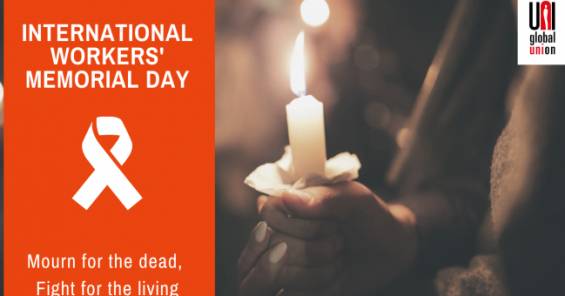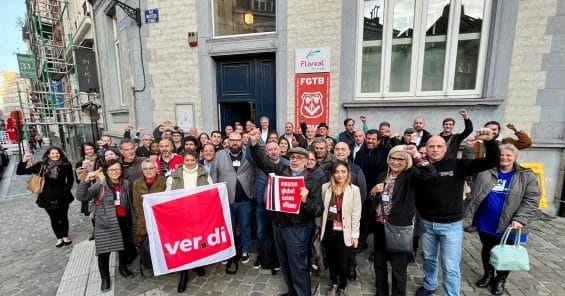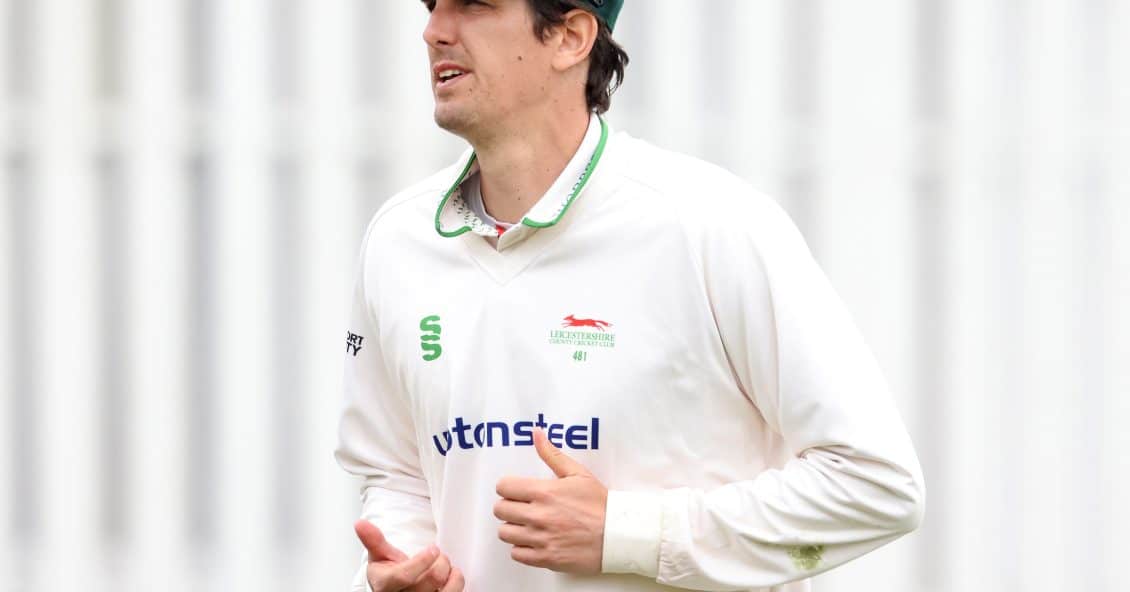Even before the catastrophic spread of COVID-19, 7,600 people died daily because of work-related illness or injury. And during the pandemic, millions of essential workers represented by UNI Global Union and our affiliates—often migrants, women, and people of colour—have risked exposure to this deadly virus to support their communities and their families. Tragically, an untold number have died.
“This International Workers’ Memorial Day, we remember the workers who are no longer with us. We hold their loved ones in our thoughts. We recognize they did not sign up to risk their lives when they worked so bravely to keep our societies running,” said UNI Global Union General Secretary Christy Hoffman. “And we honour them today—and the many others killed or injured from working—by fighting for the living.”
UNI is remembering the over 17,000 healthcare workers globally who have died from the virus. A difficult job before the pandemic, long-term care worker became one of the world’s most dangerous jobs because of it. Working in a nursing home has become as dangerous as working in mining, timber, and policing in many countries.
We are remembering the cleaners and the security guards who kept our transport, hospitals, schools, and offices safe and clean. In the UK, security guards had one of the highest occupational death rates for COVID. Cleaners face a similar risk. One US janitor, during a vigil for her fallen co-worker, asked, “How many people have to die for our bosses and government to step up?”
Grocery workers kept our communities fed—at a staggering human cost. The UFCW reports 178 grocery worker deaths and at least 39,900 grocery workers infected or exposed in the United States alone. These are workers like Kathryn Anita Mason, a union shop steward who served customers in many roles including cashier and a bakery manager at the Giant Supermarket where she worked for 42 years until she died from COVID last year.
In Brazil, Italy, Spain, India and beyond, where bank branches are staying open, bank workers are getting sick—and dying—from job-site exposure. Postal employees—who have kept us connected to each other and delivered day in, day out—have also lost many in their ranks. For example, Bola Omoyeni, a CWU member and UK postal worker for 30 years, was called a “gentle giant” with a “big heart” by his colleagues.
But International Workers’ Memorial Day is not just about remembrance. It is also about action. Unions are often the difference between safe and dangerous jobs. Unions like CUPW have fought for PPE. The SEIU has demanded paid sick leave. In Poland, nursing home workers organized for the first time. These victories are strides for workers winning in their essential rights. But there are further steps needed.
And on #IWMD21, we are demanding:
- The ILO should designate health and safety as a fundamental right.
- Governments should classify COVID-19 as an occupational disease so workers infected on the job get the support they deserve.
- All workers should have democratically elected safety and health committees. And a union.
“We do not know how many we will lose to COVID. But we know one is too many,” said Hoffman. “That is why we must fight and why we must act.”


